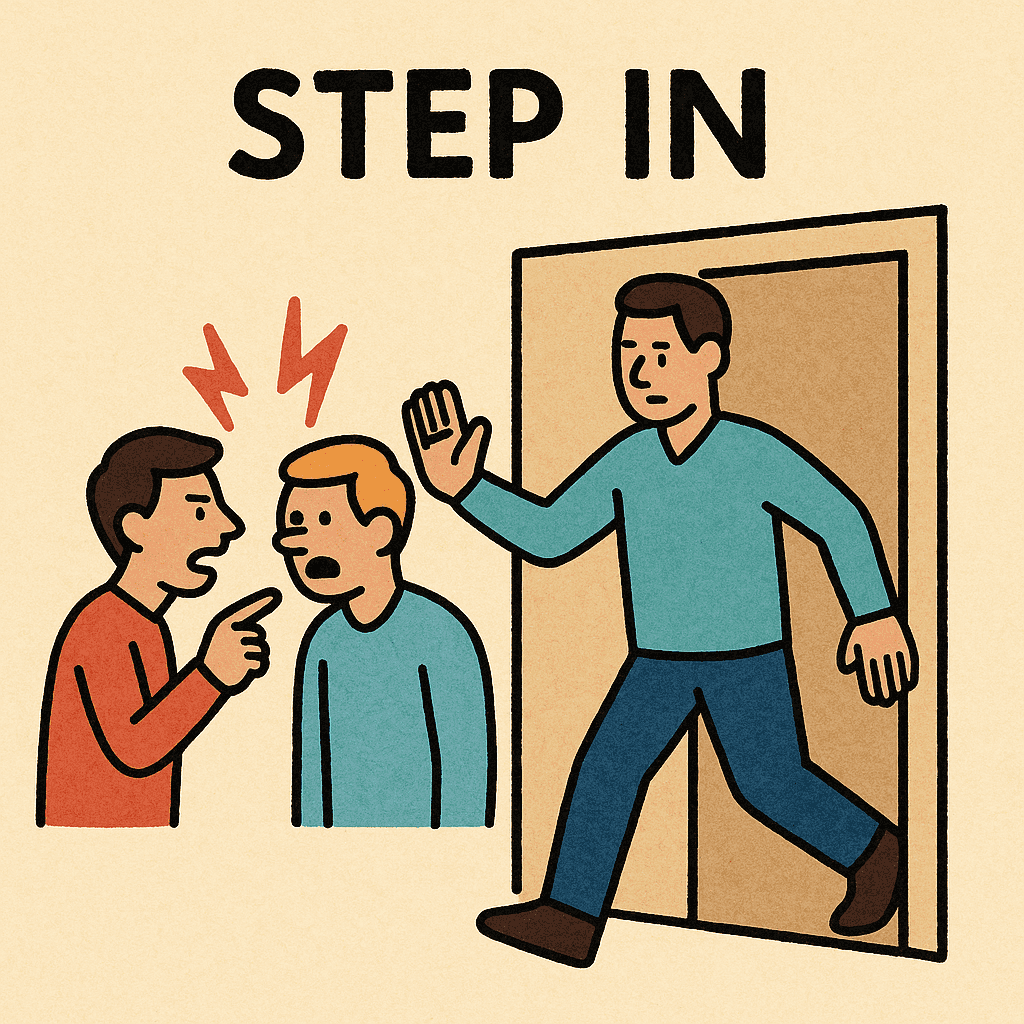Meaning
The phrasal verb step in means to become involved in a situation, often to help, stop something from happening, or take control when necessary. It can also mean physically entering a place.
Grammar and Usage
-
Part of speech: Phrasal verb
-
Verb type: Intransitive (it does not take a direct object)
-
Typical structure:
- step in (to + situation)
- step in (when + clause)
Common uses
- To intervene in a situation: The teacher had to step in when the students started arguing.
- To enter a place: Please step in and have a seat.
Common Phrases
- step in to help
- step in to prevent something
- step in to resolve a conflict
- step in when needed
Collocations
- verbs + step in: had to step in, decided to step in, asked to step in
- step in + nouns: step in a dispute, step in a crisis, step in an emergency
- adverbs + step in: quickly step in, immediately step in, finally step in
Examples
- The manager had to step in to solve the problem.
- Parents often step in when children can’t handle a situation.
- She quickly stepped in to stop the argument.
- When the speaker got sick, another person stepped in to give the presentation.
- The government decided to step in during the financial crisis.
- Please step in and make yourself comfortable.
- He only stepped in at the last moment to save the project.
- The referee stepped in to calm the players down.
Synonyms or Related
- intervene
- interfere
- get involved
- take over
- participate
Antonym
- stay out
- withdraw
- avoid
